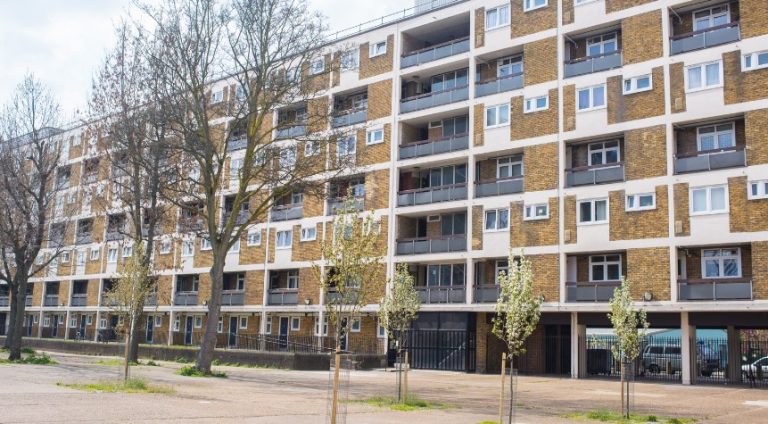It’s Sunday morning, and just as you’re settling in for a peaceful day of rest, the sounds of drilling and hammering shatter the calm. For many in the UK, this scenario is all too familiar. But it raises an important question: Can my neighbour do building work on a Sunday?
With construction noise being a common source of complaints, it’s crucial to understand your rights and the legal framework that governs building work, particularly on weekends.
This guide will walk you through the relevant laws, specifically the Control of Pollution Act 1974, and explain how local councils enforce noise regulations. By the end of this article, you’ll know how to handle noisy neighbours and protect your peace of mind.
Building Work on Sunday Law UK

In the UK, building work on Sundays is generally restricted by both national laws and local council regulations. The Control of Pollution Act 1974 provides the legal framework for controlling noise pollution from construction activities, but the specific restrictions for Sundays can vary depending on the local council’s guidelines.
Here’s a detailed look at the laws and regulations that govern building work on Sundays in the UK:
1. Control of Pollution Act 1974
The Control of Pollution Act 1974 is the primary legislation that regulates construction noise in the UK. Under this Act, local authorities can restrict the hours and noise levels at which construction work can take place, especially in residential areas.
According to the Act:
- Local councils can issue abatement notices to limit the times when building work is allowed, especially during weekends and public holidays.
- Contractors and homeowners must comply with local noise control rules, often prohibiting loud construction activities on Sundays.
2. Standard Permitted Working Hours
The general guideline across most parts of the UK is that noisy construction work should be limited to:
- Monday to Friday: 8:00 am to 6:00 pm
- Saturday: 8:00 am to 1:00 pm
- Sundays and Public Holidays: No noisy work is usually allowed
In most cases, building work on Sundays is prohibited or heavily restricted to quieter tasks that won’t disturb the peace of residential neighbourhoods.
3. Local Council Regulations
While the Control of Pollution Act 1974 provides the overarching law, local councils enforce these rules. This can lead to variations in restrictions across different areas. For example:
- Some councils strictly prohibit all types of construction work on Sundays.
- Others may allow certain types of quieter work (e.g., painting, decorating) if it doesn’t cause significant disturbance.
- Councils may issue special permits for essential or emergency building work to be carried out on a Sunday, but these are usually rare.
You should always check your local council’s website for specific regulations in your area. For instance, the Royal Greenwich Council explicitly states that no construction work should occur on Sundays or public holidays, while other councils may allow certain exceptions.
4. Exemptions for Sunday Building Work
While most noisy construction is banned on Sundays, there are a few exemptions:
- Emergency repairs: This can be carried out even on a Sunday if work is required to address an immediate safety issue (e.g., fixing a burst pipe or repairing a damaged roof).
- Essential public works: In rare cases, time-sensitive public works projects may be granted permission to continue on a Sunday.
- Special permissions: Contractors may apply for a special permit from the council to carry out work on a Sunday, but this is typically only granted under specific circumstances, such as avoiding a major disruption or completing essential repairs.
5. Filing a Noise Complaint
If a neighbour is carrying out building work on a Sunday violating local rules, you have the right to file a noise complaint with your local council. Here’s what you should do:
- Contact your local council’s environmental health department and provide details about the noise, including the time it occurred.
- The council will investigate the complaint. If it finds that the building work breaches local regulations, it may issue an abatement notice, requiring the neighbour to stop the work or reduce the noise.
- Non-compliance with an abatement notice can result in fines or legal action against the person responsible for the noise.
Can My Neighbour Do Building Work on a Sunday?

According to the Control of Pollution Act 1974, construction work is generally restricted to specific times on weekdays and Saturdays. For instance, many councils impose limits that allow construction only between 8 am and 6 pm Monday to Friday, and 8 am to 1 pm on Saturdays. On Sundays, however, the rules are much stricter.
Most local councils across the UK, such as the Royal Borough of Greenwich, advise that building work should not be carried out on Sundays or bank holidays without special permission. This is to ensure that residents have at least one day of rest from the noise of construction, which can be particularly disruptive in residential areas.
However, there are exceptions to this rule. Certain types of quiet work, such as painting or decorating, might be permitted if it doesn’t cause significant disturbance. But heavy, noisy work like drilling, hammering, or operating machinery is typically prohibited on Sundays unless special permissions have been granted by the council.
What Are the Local Council’s Rules for Building Noise?
While the Control of Pollution Act sets the general framework for managing construction noise, local councils are responsible for enforcing the rules within their areas. This means that regulations can differ slightly depending on where you live.
For example, the Royal Greenwich Council explicitly states that general construction work should not take place on Sundays. Other councils may allow certain types of work to continue, but only under strict conditions, such as obtaining a special permit or ensuring the work is limited to a specific timeframe.
How Councils Enforce Building Noise Regulations?

Councils have a range of tools at their disposal to enforce noise regulations. If you’re being disturbed by building noise, you can report it to your local council, which will usually send out an environmental health officer to investigate the situation.
Suppose the officer finds that the noise is excessive or occurs outside permitted hours. In that case, the council can issue an abatement notice, which legally requires the person responsible to stop or reduce the noise.
Failure to comply with an abatement notice can result in fines or legal action. In extreme cases, councils may even seize noisy equipment to prevent further disturbance.
How to Check Your Local Council’s Noise Regulations?
If you’re unsure about the specific rules in your area, checking your local council’s website is a good starting point. Most councils publish clear guidelines on construction noise, outlining the permitted hours for building work and how residents can file complaints if those hours are breached. Typically, you’ll find these details under sections like “Environmental Health” or “Noise from Building Works.”
To give an example, here’s a quick guide to checking your local council’s regulations:
- Visit your council’s official website.
- Search for terms like “building noise regulations” or “construction noise rules.”
- Look for specific details about permissible work hours, particularly for weekends and bank holidays.
What Should You Do If Your Neighbour Does Building Work on a Sunday?
So, what can you do if your neighbour is doing noisy building work on a Sunday? The first step should always be to approach your neighbour directly. In many cases, they may not be aware that they’re violating noise regulations, and a polite conversation can resolve the issue before it escalates.
Steps to Take:
- Speak to your neighbour: Politely let them know about the noise and the restrictions in place regarding building work on Sundays. Sometimes, a simple conversation can prevent further problems.
- Contact your local council: If speaking to your neighbour doesn’t resolve the issue, your next option is to contact your local council’s environmental health team. You can file a formal noise complaint, and they will investigate the situation.
- Document the noise: If the noise continues, keep a log of when the building work takes place and how it affects you. This documentation can help support your complaint to the council if the issue persists.
Once a noise complaint is filed, your council will investigate and, if necessary, take further action, such as issuing an abatement notice or even imposing fines if the rules are continually broken.
Common Exemptions for Sunday Building Work

While Sunday is generally a “quiet day” in terms of building work, there are some exceptions. Emergency repairs are one of the most common exemptions. If your neighbour’s work involves fixing a burst pipe, electrical issues, or other urgent repairs that could cause significant damage if left unaddressed, the work may be allowed on a Sunday, even if it generates noise.
What Types of Work May Be Allowed?
- Emergency plumbing repairs: If a pipe bursts, emergency repairs can be done immediately to prevent water damage.
- Structural repairs: Urgent work on damaged roofs or walls may be permitted to ensure the building’s safety.
- Special permissions: In rare cases, a contractor may apply for special permission to carry out building work on a Sunday, particularly for time-sensitive public projects.
Suppose you suspect that the building work on a Sunday is not related to an emergency or hasn’t been permitted by the council. In that case, it’s always worth verifying with your local authority.
What Are the Tips for Maintaining Good Neighbour Relations?

While knowing your legal rights is important, maintaining a good relationship with your neighbours can often prevent noise issues from escalating. Open communication is key, and a little diplomacy can go a long way in resolving conflicts.
Suggestions for Addressing Noise Issues with Neighbours
- Approach the issue early: If you know your neighbour is planning building work, it’s worth having a conversation before the noise becomes a problem. This can help set expectations and avoid future conflicts.
- Be understanding: Sometimes, building work is necessary, and while the noise can be frustrating, showing some understanding may encourage your neighbour to keep the disruption to a minimum.
- Propose compromises: If the building work is essential but noisy, you could suggest quieter hours or alternative times for particularly disruptive work. For example, agreeing that noisy work will only take place during weekday mornings.
Conclusion
In the UK, the Control of Pollution Act 1974 provides clear guidelines on when and how noisy building work can take place. Sundays are generally protected from construction disruptions, but it’s important to check your local council’s rules and regulations to be certain of your rights.
If you find that your neighbour is conducting noisy work outside permitted hours, start by having a polite conversation. If the noise continues, you can formally contact your local council. Whether it’s making a noise complaint or reaching an amicable agreement with your neighbour, understanding the rules will help you protect your peace and quiet.
What Are the FAQs About Building Work on a Sunday?
What are the quiet hours for building work in the UK?
In most areas, building work is restricted to 8 am to 6 pm on weekdays and 8 am to 1 pm on Saturdays, with no work generally allowed on Sundays or bank holidays.
Can councils fine people for noisy building work on Sundays?
Yes, if a neighbour continues to violate noise regulations after being issued a warning or abatement notice, they could face fines or legal action.
How can I check my local council’s rules on construction noise?
For specific information on building noise regulations, visit your local council’s website or contact its environmental health department.
What is the Control of Pollution Act 1974, and how does it apply to me?
The Control of Pollution Act 1974 gives local councils the authority to regulate construction noise and other forms of pollution. It sets the framework for restricting building noise in residential areas.
Can emergency building work be carried out on Sundays?
Yes, Sundays may be allowed for essential repairs or emergency works that cannot be delayed. This often includes plumbing, electrical, or structural repairs.
How do I file a noise complaint about building work on a Sunday?
You can report the issue to your local council’s environmental health team. They will investigate and, if necessary, take action to stop the noise.
Do local councils differ in their enforcement of noise regulations?
Yes, local councils can enforce noise regulations differently. Some impose stricter guidelines on construction hours, especially on Sundays.






